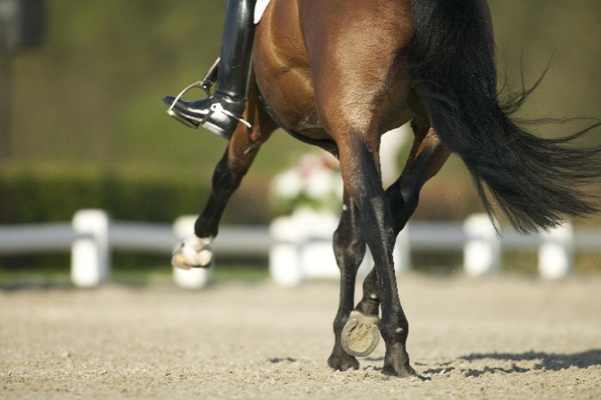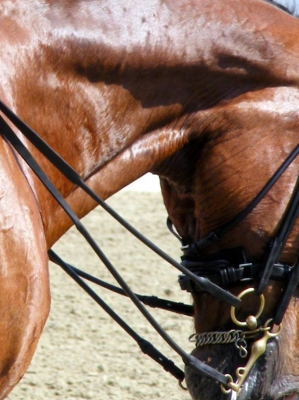|
Advice article filter
|
How the muscles acidify less quicklyIn this article, we draw on scientific research to explain how the supplement Pavo MuscleCare is formulated and which substances are important for sport horses. Hard training and irregular work take their toll on a horse’s body. Muscles acidify and become stiff. Pavo MuscleCare takes care of them. For stiff and sore muscles, Pavo MuscleCare helps to remove metabolic products such as lactic acid more quickly. This helps your horse to regain its suppleness more quickly. AcidificationHorses are excellent athletes. They are naturally flight animals, which is why they are able to react and run quickly. In this response, muscles need to be able to release a lot of energy very quickly. This is done by producing ATP anaerobically (without oxygen). This produces lactic acid as a waste product, which accumulates in the muscles. The muscles then ‘acidify’. This also happens to the horse during intensive training. Buffer against acidificationMuscles acidify due to an excess of H+ ions from lactic acid, which are known as ‘free radicals’. Fortunately, the horse has a system to eliminate free radicals that prevents the muscles from acidifying immediately when lactic acid is first produced. We call this a buffer. One of the buffering substances is carnosine. It is formed in the body from the amino acids beta-alanine and L-histidine. A high concentration of carnosine in the muscles means that there is a large buffer and ensures that acidification occurs much less readily (Geor et al., 20131). Beta-alanineThe horse can make carnosine itself, which is a good thing because beta-alanine and carnosine are not present in vegetable material. L-Histidine is present in adequate quantities in horse feed. Research has shown that adding a beta-alanine supplement to the feed can increase the carnosine content in the muscles (Dunnet and Harris, 1999). This improves the horse’s ability to absorb acidification and to maintain intensive performance for a longer period. This is also used in human endurance sports nutrition (Hobson et al., 2012). Complete care for the musclesAside from beta-alanine, Pavo MuscleCare also contains extra antioxidants such as vitamin C and natural vitamin E. Natural vitamin E has good bioavailability (Pagan et al., 2005) and is more effective in the horse’s body, with more available vitamin E in IU (international units) per mg (see table). Natural vitamin E (RRR-alpha-tocopheryl acetate) contains 1.36 IU, while synthetic vitamin E (all-rac-alpha-tocopheryl acetate) contains 1 IU (Geor et al., 20132). Antioxidants relieve stiff muscles and aid faster recovery. Horses that are sensitive to tying-up syndrome also benefit from this.
(Source: Geor et al., 20132) ElectrolytesBecause large amounts of electrolytes such as sodium, potassium and chloride are lost during intensive training through sweating, MuscleCare contains extra added sodium. Horses get very little sodium by way of roughage, although roughage does provide potassium and chloride. The sodium is added to maintain a good acid-base balance (Geor et al., 20133). Although the horse can produce vitamin B itself, production can be diminished by stress. Extra vitamin B6 and Choline are added for support. Recommended use of Pavo MuscleCareThe recommended dose of Pavo MuscleCare is 100 grams per day for a 600 kg adult horse. Divide this into 2 portions of 50 grams per day. For competition, feed 2-3 hours before the event. Bibliography:
 
|

